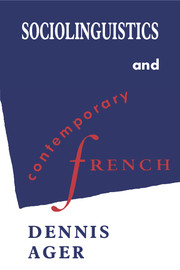Summary
Approaches and methods
SMALL-GROUP interaction, or the language use of primary groups in face-to-face situations, is a topic of much interest to philosophers, psychologists and sociologists as well as linguists. It is not surprising therefore that there exists a plethora of approaches and methodologies for analysing it, and for extracting from an example such as a conversation a range of different interpretations according to the purpose of the analysis. Since our concern is with the different ways in which French can be used, and the different forms the language can take, we shall attempt to avoid too much discussion of particular schools of thought and concentrate on the data, taking insights from different approaches as and where they seem appropriate to illuminate the variations in French language use which mainly concern us.
Three such insights or approaches are particularly helpful in this: the idea of the social network, which helps to relate language use to context, and two methods for analysing text itself: discourse analysis and conversation analysis.
The communication situation outlined in the previous chapter represents a setting for communication between a sender and a receiver, both located within a particular situation and each bringing to the exchange his or her own personality, experiences and social ‘persona’ (sex, age, class, race, geographical origin, etc.).
- Type
- Chapter
- Information
- Sociolinguistics and Contemporary French , pp. 194 - 217Publisher: Cambridge University PressPrint publication year: 1990



